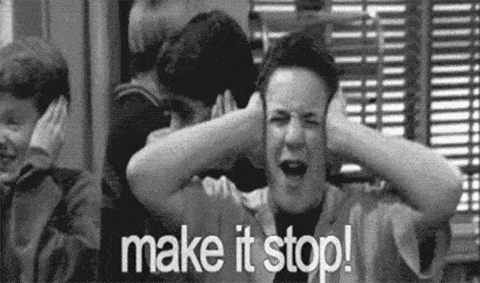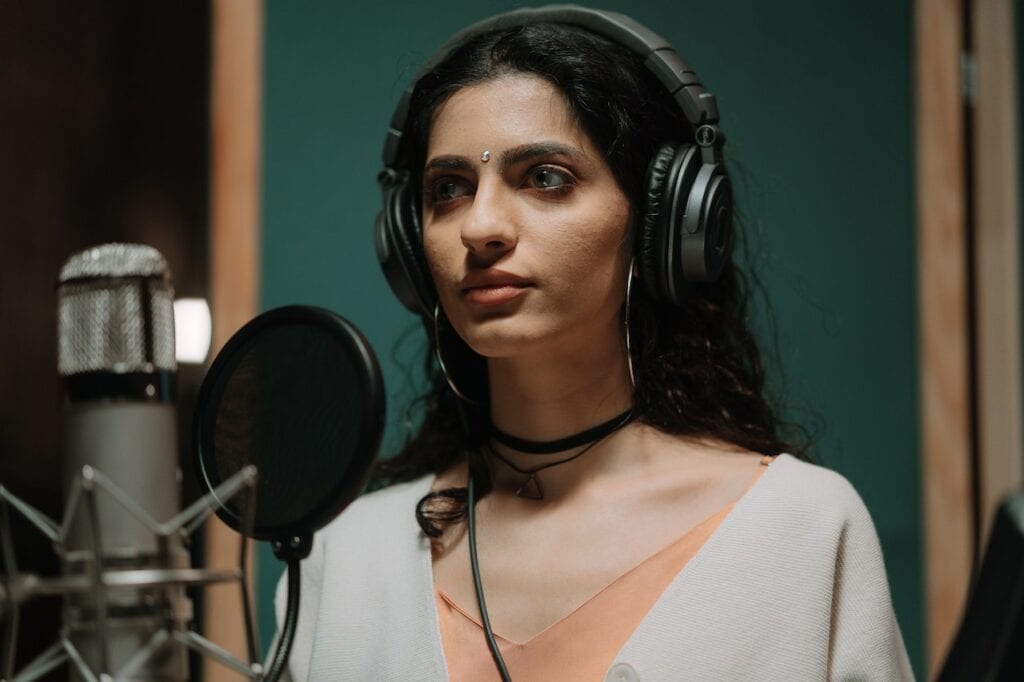Affiliate Disclaimer: I hope you love the products and services I recommend - I truly believe in them. Just so you know, I may collect a tiny compensation from the links on this page at no added cost to you. Thank you if you use my links, I really appreciate it!
Interested in a voice acting career but unsure if your voice is good enough to have any success?
This guide will give you the honest truth about how the sound of your voice relates to a successful career in voice acting.
To fully understand the answer to this question, there are a few things we need to go over first.
KEY TAKEAWAYS
- Don’t trust your own judgment of your voice because your voice lies to you (at first).
- Don’t let the opinion of people around you affect your opinion of your voice (good and bad). It’s the voiceover buyers and decision-makers who matter, but even their opinion of your natural voice doesn’t totally matter.
- Your natural superpower in voiceover is your unique voice.
- Your unique voice MIGHT fit best in specific VO genres.
- Your unique voice is also not nearly enough. You need the skills to give an emotionally honest and accurate read of each voiceover script.
- You also need to know how to build a successful and sustainable voiceover business.
- No – you do not need a “good voice” to have success in VO.
Your voice lies to you

“Trust your body.”
This is a common saying and it’s mostly true (except when it’s not).
While you’re wondering if you have a good voice for voiceover (and if it matters), remember that your voice (and ears) lie to you initially.
When you hear yourself on a recording for the first time, you’ll probably shudder and think…
“Oh. My. God. I sound AWFUL!”
That’s what I thought when I heard my first VO practice recording in 2011 (using Audacity).
Like freaking nails on a chalkboard.

That’s because your voice sounds MUCH different when recorded.
You’re hearing your voice in a completely different way.
Here are the two ways you typically hear your voice
So, that low, natural rumble that you’ve been used to YOUR ENTIRE LIFE is gone.
And it sounds weird.
But it won’t sound weird forever.
As you record and edit your VO audio more and more, you’ll eventually get used to how your voice sounds.
And you can trust it more.
But if it lies initially, how do you know if it’s any good? Or if it’ll work well in VO?
Ignore voiceover career hot air (or no air)

Aspiring voice actors will often say to me…
“People tell me I have a great voice and should get into voiceovers”.
Or maybe no one’s ever said that to you which gets you concerned that maybe you don’t have a “voice for voiceover”.
I say…
Ignore them.
What the hell do these people know about voiceover?
(sorry, not sorry about the language)
They mean well. And they’re giving you a compliment. That’s genuinely nice of them.
Or they might not be saying anything about your voice at all.
Does it matter what they think?
I need you to consider several things when you hear someone say this (or not say this)…
Do they hire pro voice talent?
Are they talent agents?
Are they even working VO pros?
Do they know about all the genres of voiceover and the nuances of each read style?
Do they know what it takes to have a successful voiceover career and business?
It’s like me telling you…
“You can throw a football really well. You should get into the NFL and be a quarterback.”
Stop it.
Now, if Bill Belichick (head coach of the New England Patriots) said this to you, alright. Maybe you should consider it.

The point is that you shouldn’t worry about what non-VO people think about your voice.
You should worry about what people who hire voice actors think about your voice.
And at the very least, those that coach or work in VO.
But even those opinions about your natural voice don’t really matter because…
Your unique voice is your natural-born VO superpower

Your voice is as unique as a fingerprint.
And that’s a massive asset in VO.
It’s amazing really.
No one has a voice like yours.
Your s’s are unique.
Your rhythm and speed are unique.
Your natural, regional accent is unique.
Your experiences which inform the way you speak and interpret a script are unique.
It’s all you.
It’s what will naturally set you apart from your competition.
In this sense, it doesn’t matter what your voice sounds like because each voice is unique.
However, there is one way the sound of your voice may matter…
Your natural voice may fit best in a specific voiceover genre
This is where your natural sound MIGHT matter.
Certain natural voices may lend themselves really well to specific VO genres.
Big, low, textured voices may work really well in promo work or in that typical movie trailer style.
Nasally voices may work well in animation.
Naturally quiet, relaxed voices may work well in narration-style work or audiobooks.
My specific voice works well in Gen Y, conversational commercial work like this:
It’s important to know that there are no hard and fast rules here because while your natural sound may lend itself best to specific genres…
You need far more than just your unique voice to succeed

Great.
You have a unique voice that’s all your own that MAY work best in a certain style.
It’s not enough, my friend.
Not even close.
In order to have success in this crazy VO world, you must learn how to use that voice to interpret and perform copy effectively.
It IS acting after all.
Which also means nearly any voice can work within any genre IF they have the right skills.
And outside of developing your performance skills, you need to figure out how to consistently find and book voiceover jobs to build a successful VO business.
(Side note: Helping you build a successful VO biz is what this website is all about.)
Which brings us to the big question…
Do you need a good voice to be successful in voiceover?
ANSWER: NO. You do not need to have a prototypical, smooth “good voice” to be successful in voice acting. Some of the most successful voice actors in the world have weird or odd-sounding voices.
In fact, all voices can do voiceover but you need to train the skills (performance, audio editing, business, marketing, website design, relationship-building, etc.) surrounding your natural voice to be successful.
Conclusion: Putting It All Together
No, you don’t need a “good voice” to succeed in voiceovers.
And even if you did, don’t trust your initial opinion of your voice (or the opinion of your friends and family).
It’s the opinion of voiceover buyers and decision-makers that matters.
But even their opinion of your natural speaking voice doesn’t really matter because your unique voice is what is going to set you apart.
And while some natural sounds may work best in specific genres, what truly DOES matter is your ability to give an emotionally honest and accurate read of each voiceover script.
And that you know how to build a successful VO biz.
Want to build a successful voiceover business?
Sign up for FREE weekly VO advice below and do exactly that.

